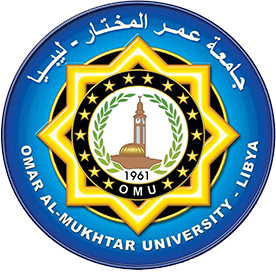| dc.contributor.author | Naqsha, Hussein Muhammad | |
| dc.date.accessioned | 2024-05-23T11:03:20Z | |
| dc.date.available | 2024-05-23T11:03:20Z | |
| dc.date.issued | 2014-03-30 | |
| dc.identifier.issn | 2791-1616 | |
| dc.identifier.uri | http://dspace.omu.edu.ly/xmlui/handle/123456789/246 | |
| dc.description.abstract | The research explores the authenticity of the literary human experience and its artistic and aesthetic value using descriptive analysis. It argues that criticism arises from the source from which literature originates, and that the aesthetic and artistic value in literary judgment is generated through the interaction between knowledge and literary judgment. The research emphasizes that the language of the literary experience, whether in its clarity or ambiguity, and the symbolic usage or artistic obscurity that lies behind linguistic meanings, are sources of literary judgment. The research focuses on the term "literary criticism," consider-ing criticism as a living literary experience with ethical, aesthetic, and human values. Terms such as "good" and "quality" do not carry meaning in isolation from their relationship to the development of the critical movement. The research distinguishes between transient literary commentary and literary analysis based on an awareness of language, its connotations, symbolism, and its affective function. It asserts that taste cannot be considered criticism unless it is associated with criteria that are not absolute in their idealism and lack spontaneity in their application.
يبحث البحث في أصالة التجربة الإنسانية الأدبية وقيمتها الفنية والجمالية مستخدما التحليل الوصفي. ويرى أن النقد ينبع من المصدر الذي نبع فيه الأدب، وأن القيمة الجمالية والفنية في الحكم الأدبي تولد من خلال التفاعل بين المعرفة والحكم الأدبي. ويؤكد البحث على أن لغة التجربة الأدبية بوضوحها أو غموضها، والاستعمال الرمزي أو الغموض الفني الذي يكمن وراء الدلالات اللغوية مصدرا من مصادر الحكم الأدبي. يركز البحث على مصطلح (أدب النقد) الذي يعتبر النقد تجربة أدبية حية لها قيم أخلاقية وجمالية وإنسانية؛ فمصطلحات مثل (جيد، جودة) لا تعني شيئا بمعزل عن علاقتها بتطور الحركة النقدية. يميز البحث بين التعليق الأدبي العابر والتحليل الفني الأدبي القائم على وعي اللغة بدلالاتها ورمزيتها ووظيفتها الانفعالية. وأن الذوق لايعتبر نقدا مالم يرتبط بنقاييس ليست مطلقة بمثاليتها ولاعفوية في تطبيقها. | en |
| dc.publisher | Al-Mukhtar Journal of Social Science | en |
| dc.subject | Human experience, Literary experience, Literary judgment, Literary criticism, Linguistic meanings, Artistic and aesthetic values. | en |
| dc.subject | التجربة الإنسانية، التجربة الأدبية، الحكم الأدبي، أدب النقد، الدلالات اللغوية، القيم الفنية والجمالية | en |
| dc.title | Roots of criticism | en |
| dc.title.alternative | جذور النقد | en |
| dc.type | Article | en |
